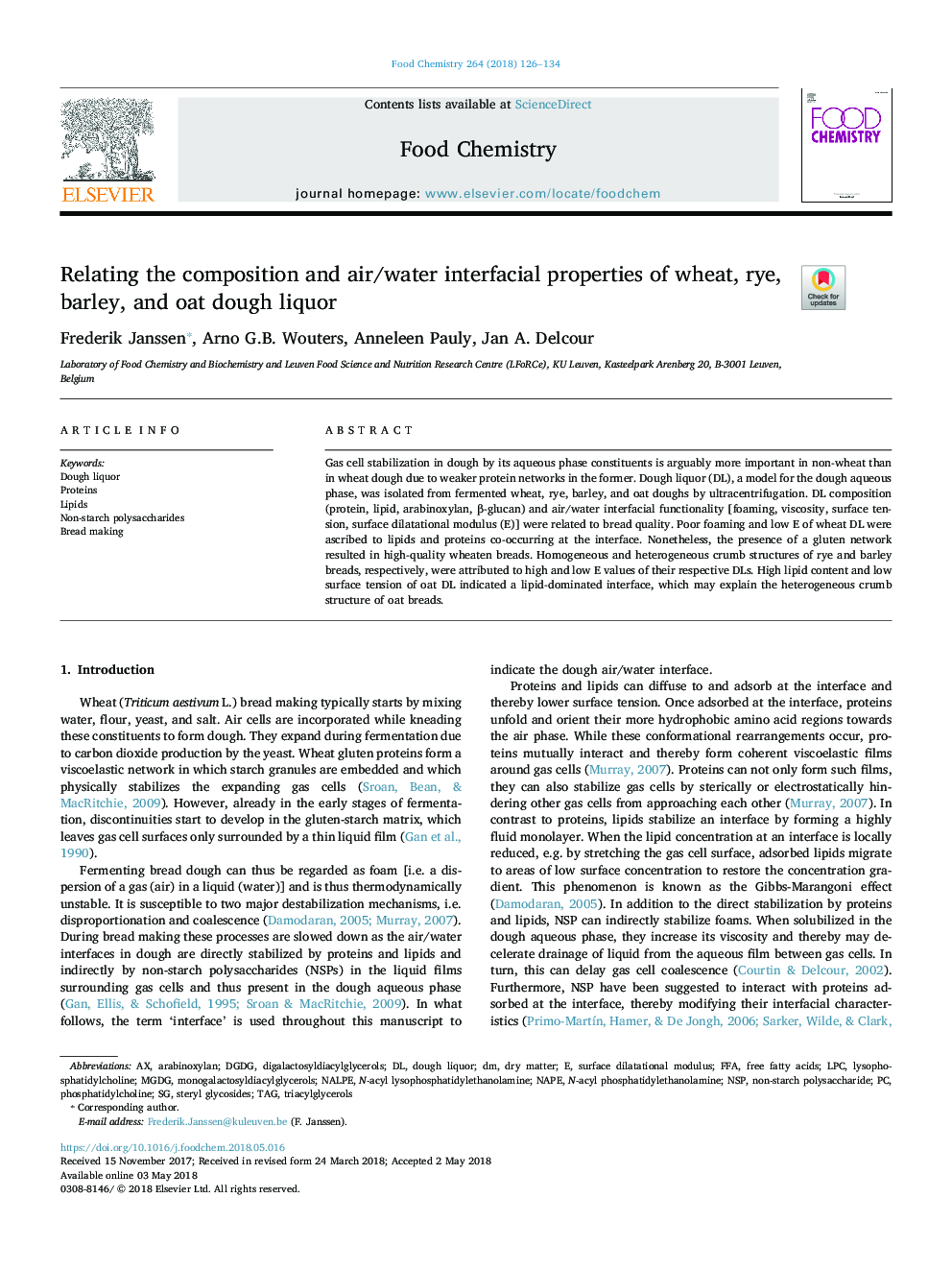| Article ID | Journal | Published Year | Pages | File Type |
|---|---|---|---|---|
| 7584661 | Food Chemistry | 2018 | 9 Pages |
Abstract
Gas cell stabilization in dough by its aqueous phase constituents is arguably more important in non-wheat than in wheat dough due to weaker protein networks in the former. Dough liquor (DL), a model for the dough aqueous phase, was isolated from fermented wheat, rye, barley, and oat doughs by ultracentrifugation. DL composition (protein, lipid, arabinoxylan, β-glucan) and air/water interfacial functionality [foaming, viscosity, surface tension, surface dilatational modulus (E)] were related to bread quality. Poor foaming and low E of wheat DL were ascribed to lipids and proteins co-occurring at the interface. Nonetheless, the presence of a gluten network resulted in high-quality wheaten breads. Homogeneous and heterogeneous crumb structures of rye and barley breads, respectively, were attributed to high and low E values of their respective DLs. High lipid content and low surface tension of oat DL indicated a lipid-dominated interface, which may explain the heterogeneous crumb structure of oat breads.
Keywords
monogalactosyldiacylglycerolsNALPEDGDGMGDGFFAarabinoxylanN-acyl phosphatidylethanolamineNSPLPCFree fatty acidsTriacylglycerolsTAG یا triacylglycerols digalactosyldiacylglycerolsBread makingphosphatidylcholineLysophosphatidylcholinedry matterNAPEProteinsnon-starch polysaccharidesNon-starch polysaccharideLipids
Related Topics
Physical Sciences and Engineering
Chemistry
Analytical Chemistry
Authors
Frederik Janssen, Arno G.B. Wouters, Anneleen Pauly, Jan A. Delcour,
